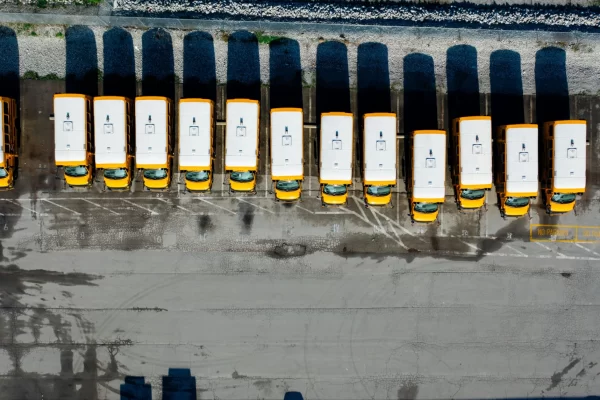In the world of modern logistics and fleet management, maximizing efficiency and ensuring the security of valuable assets are top priorities. With the advancements in technology, fleet managers now have access to a powerful tool called trailer telematics. Trailer telematics enables real-time tracking, monitoring, and analysis of trailers and their cargo, offering numerous benefits for fleet operations. In this blog post, we will explore how fleets are utilizing trailer telematics to streamline their operations, improve productivity, and enhance overall fleet management.
Real-time Tracking and Location:
One of the most significant advantages of trailer telematics is the ability to track and locate trailers in real-time. Traditional methods of monitoring trailers relied on manual checks or periodic updates from drivers. However, with trailer telematics, fleet managers gain access to precise and up-to-date information on the location of each trailer. This real-time tracking capability enables more efficient planning, routing, and dispatching, minimizing empty miles and reducing fuel costs. It also allows for quicker response times in case of unexpected delays or emergencies.
Cargo Monitoring and Security:
Trailer telematics goes beyond tracking the location of trailers; it also provides comprehensive cargo monitoring and security features. By equipping trailers with various sensors, fleet managers can remotely monitor parameters such as temperature, humidity, door status, and even the presence of motion or tampering. This level of visibility allows for proactive measures to ensure cargo integrity, quality control, and compliance with regulatory standards. In the event of unauthorized access or unusual conditions, alerts can be sent to fleet managers, enabling swift action to mitigate potential risks and prevent theft or damage.
Maintenance and Asset Management:
Efficient fleet management involves keeping vehicles and trailers in optimal condition to minimize breakdowns and costly repairs. Trailer telematics offers valuable insights into trailer health and maintenance needs. By monitoring parameters such as tire pressure, brake performance, and battery status, fleet managers can proactively schedule maintenance tasks, reducing downtime and enhancing overall operational efficiency. Additionally, trailer telematics helps with asset management by providing data on trailer utilization, allowing fleet managers to identify underutilized trailers or optimize their distribution based on demand patterns.
Data Analytics and Performance Optimization:
The wealth of data collected through trailer telematics systems can be analyzed to gain valuable insights into fleet performance. Fleet managers can leverage this data to identify patterns, optimize routes, and streamline operations. By analyzing historical data, they can identify areas for improvement, such as reducing fuel consumption, increasing driver productivity, and optimizing delivery schedules. Data analytics also enable evidence-based decision-making, helping fleet managers identify inefficiencies, make informed investments, and improve the overall profitability of the fleet.
Trailer telematics has revolutionized the way fleets manage their operations. Real-time tracking, cargo monitoring, maintenance insights, and data analytics empower fleet managers to optimize their resources, improve productivity, and enhance the security of valuable assets. By leveraging the power of trailer telematics, fleets can reduce operational costs, increase customer satisfaction, and stay competitive in today’s demanding logistics landscape. Investing in trailer telematics technology is a smart choice for fleet managers looking to gain a competitive edge and unlock the full potential of their operations.
For more information visit Traxxis GPS.





